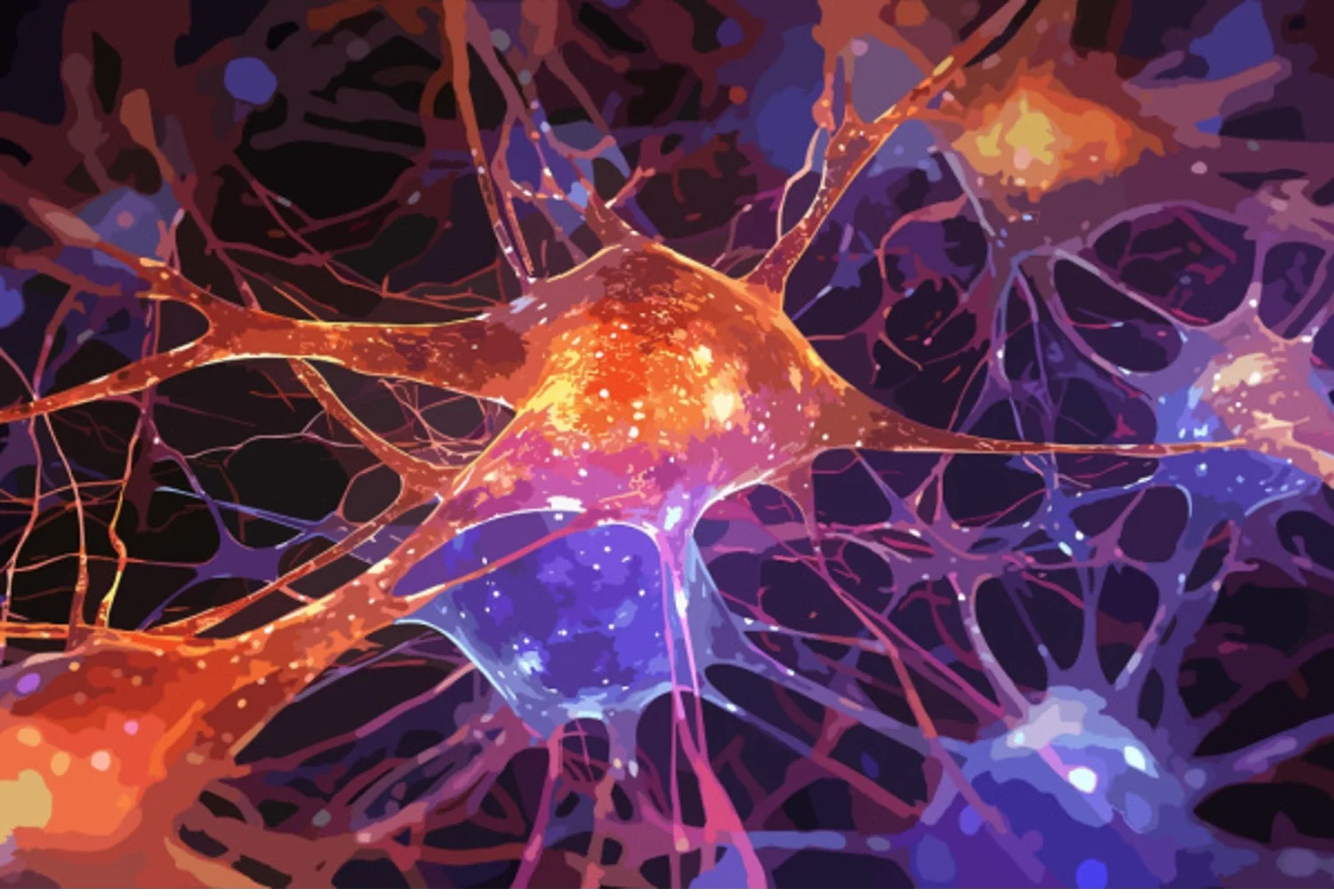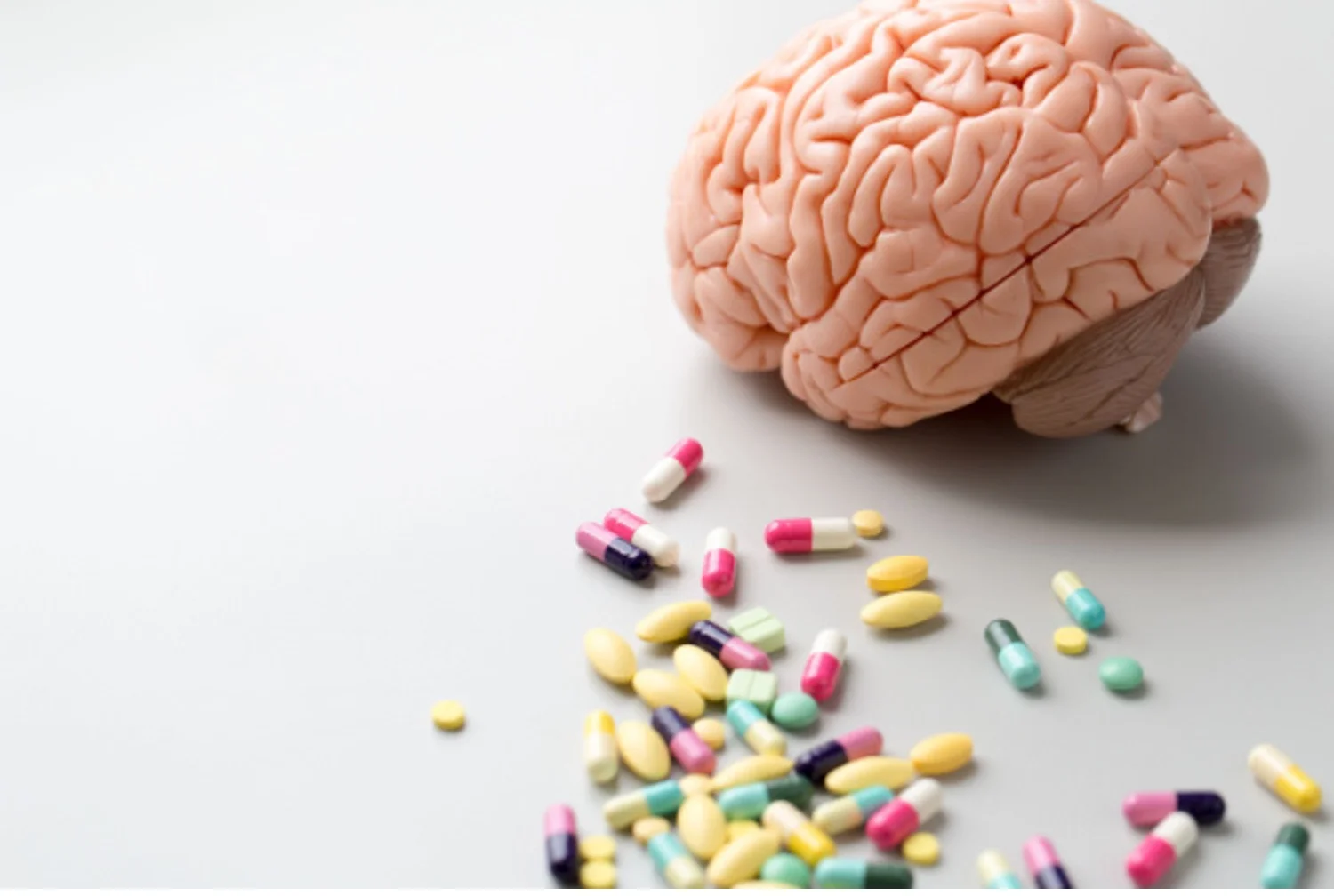Rewiring Your Brain from Addiction: How It Works and How Long It Takes
The human brain is incredibly adaptable and can form new neural pathways even after years of addiction. While overcoming addiction is extremely difficult, it is possible for the brain to “rewire” itself and develop new, healthy habits through focused effort and treatment.
Below, we explore how long it takes to rewire the brain from addiction, how the brain becomes addicted in the first place, and the techniques that can help you maintain healthy habits in recovery.
How Long Does It Take to Rewire Your Brain from Addiction?
Addiction is a complex disease that affects every individual in a unique way. So, how long it will take to rewire the brain from addiction will be different for each person.
According to psychiatric mental health nurse practitioner (PMHNP) Valerie Puffenberger, “it takes months, and often years, to rewire neural pathways.”
Although every person is unique, abstaining from drugs can help rewire the brain. Studies conducted on a drug-by-drug basis found that:
- The brains of heavy methamphetamine users exhibited microglial activation levels typical of a non-meth user 14 to 24 months after discontinuation of use.
- The cognition levels of 66% of patients with a diagnosable alcohol use disorder returned to normal within 18 days after discontinuation of use.
- The brains of former cocaine users had higher levels of frontal cortex activity within one to five weeks after discontinuation of use, and significantly higher levels after 10 to 25 weeks of abstinence.
- After abstaining from cannabis for an average of 29 months, the hippocampal regions (the area of the brain responsible for memory) of former marijuana users returned to normal.
Most treatment programs last 28, 30, 60, or 90 days, although few patients will have completely rewired their brains from addiction in that span. Most post-acute withdrawal symptoms will disappear within two years, which means that the body has fully adapted to sobriety by that point.
However, even if the brain has been rewired from addiction, that does not mean the addiction has been cured. Quite the opposite is true. Recovery is a lifelong commitment, and relapse is always possible.
“Addictive tendencies will not disappear completely, and the brain may always remember reward associations,” says Puffenberger. “However, new wiring can override old triggers.”
Factors That Affect How Long It Takes the Brain to Rewire After Addiction
A very large number of factors go into determining how long it takes to rewire the brain from addiction, including:
- What substance(s) the individual is addicted to.
- The number of substances the individual is addicted to.
- Whether the individual has any co-occurring mental health or medical conditions.
- How old the individual was when their substance use or behavior engagement began.
- How long the addiction has been present.
- How much of the substance the individual used, and how often.
- The age and gender of the individual.
- The unique body and brain chemistry of the individual.
- The individual’s personality traits and determination to achieve sobriety.
- What triggers the individual has.
- Whether or not the individual has sought out professional addiction treatment.
The Science of Brain Rewiring

Patients are able to rewire their brains from addiction as a result of neuroplasticity.
Neuroplasticity, also known as neural plasticity or brain plasticity, is the brain’s ability to change its structure and create new neural pathways over time.
Neuroplasticity is a process by which the nervous system changes how it acts by reorganizing its structure in response to internal or external stimuli.
Neuroplasticity is what allows stroke or traumatic brain injury patients to regain functioning, and it does the same thing for addiction sufferers. Even though addiction can significantly change the way the brain functions, and even its structure and chemical composition, neuroplasticity will allow the vast majority of addiction sufferers to return to “normal” after a sufficient period of sobriety.
Examples of how neuroplasticity works include:
- Neuronal regeneration (or collateral sprouting): The ability to repair or replace nerve cells that have been damaged by addiction.
- Functional reorganization: The ability of one part of the brain to take over the functions of another part.
How Addiction Changes the Brain

Addiction, whether to substances or behaviors, can significantly impact the brain, especially its functioning, chemical composition, and structure.
Although every substance will impact the brain in unique ways, addiction will generally change the brain’s:
- Reward system
- Executive functioning
- Habit loops
- Chemical makeup and structure
We’ll cover these in more detail below.
Reward System Hijacking
Most addictive substances and behaviors hijack the body’s reward system.
Substance use causes the brain to release “feel-good” chemicals, such as dopamine and serotonin. Eventually, the body becomes dependent on this excessive amount of reward chemicals to function “normally,” and it may begin to require the substance to produce any reward chemicals at all.
In other words, addiction can make it so sufferers cannot feel “good” or even “fine” unless they are using a substance.
Compromised Executive Functioning
Many substances compromise the brain’s executive functioning, meaning they disrupt the individual’s ability to manage their thoughts, emotions, and actions.
Even one-time substance use can compromise executive functioning, such as a drunk person losing inhibitions and engaging in risky behavior. However, this is magnified by addiction, especially severe addiction. Often, individuals will go to unbelievable lengths to satisfy cravings.
When suffering from addiction, your thoughts, emotions, and actions revolve around using—and getting more of—the addictive substance.
Conditioning and Habit Loops
Substance use, especially the prolonged substance use typified by addiction, is very likely to cause habit loops. Habit loops consist of three parts:
- A cue: Something that triggers the craving to use, like seeing a beer bottle or being in an uncomfortable situation.
- A behavior: In the case of addiction, the behavior would be using the substance.
- A reward: The rush of “feel-good” chemicals that result from using the substance.
As addiction progresses, the brain starts to associate more and more cues with the addictive behavior. The habit loop becomes stronger, making it very hard to break the addiction. Even if the behavior is stopped, cues can trigger intense cravings and relapse.
As mentioned above, addiction physically alters the brain’s reward system and frontal cortex function, making it extremely challenging to break habit loops.
Chemical and Structural Changes
Addiction can cause structural and chemical changes in the brain that impact functioning and behavior. And different substances can have different effects on the chemicals and structure of the brain.
For example, long-term alcohol use can alter the brain’s structure and chemical makeup to the point victims constantly appear drunk (wet brain). Another example is opioids. Drugs like heroin and fentanyl are so structurally similar to the body’s natural opioids that they block them from bonding with neurotransmitters. Eventually, the body can no longer produce its own natural opioids.
How to Rewire Your Brain in Recovery

Just as addiction changes the brain, so can recovery. Neural pathways associated with addiction weaken as a result of disuse, while new neural pathways are built as a result of healthier behaviors.
Getting professional help will give you the best chances of recovery and healing your brain.
“While willpower helps, getting professional treatment and support dramatically improves rewiring success,” says Puffenberger.
How to rewire your brain from addiction, and how long it takes to do so, will vary depending on what stage you are at in your recovery, which we’ll cover below.
Brain Rewiring During Withdrawal
The withdrawal phase is the most difficult part of recovery for many patients to get through. This is when patients start to taper off and/or abstain from using the addictive substance.
Although the acute withdrawal phase (when symptoms are the strongest and most consistently present) typically only lasts two or three weeks, it is often very unpleasant, and sometimes dangerous.
However, even the worst symptoms are signs that the brain is beginning the rewiring process, and it is during this phase that the most rapid brain rewiring takes place.
It is highly advisable that most individuals seek out professional help during the withdrawal phase, especially if they are addicted to alcohol, benzodiazepines, and/or barbiturates.
Brain Rewiring During the Early Recovery Phase
Once a patient gets through withdrawal, they enter the early recovery phase. Professional help (especially inpatient or outpatient rehab) is often highly advisable during this stage.
With the help of mental health professionals, patients will start to explore the underlying reasons for their addictions and build mental fortitude so they can maintain their sobriety. This is a key part of the brain rewiring process.
Patients will begin to see more signs of progress that their brain is successfully rewiring itself—and it’s important that patients take action to foster these changes. Some of these changes may include:
- Reduced cravings
- Improved mood and sleep cycles
- Increased focus and clarity
- Improved emotional regulation and control
- Return to interests and hobbies
- Improved relationships
- Better health
Brain Rewiring During the Sustained Recovery Phase
Although the brain is undergoing rewiring during all phases of recovery, the longest-lasting changes are seen during the sustained recovery phase.
Individual therapy, support groups, personal lifestyle changes, and daily routines are the main drivers of rewiring during this phase.
Patients can expect to see the following examples of brain rewiring during the sustained recovery phase, although some take longer to appear than others.
- Neuroplasticity continuing to reinforce sobriety and reducing cravings
- Further improvements in emotional regulation and more stable moods
- Improved decision-making, judgment, and behavior
- Increased gray matter
- Improvements in memory and learning
- Dopamine, serotonin, and other chemicals appear and function normally
- Strengthened executive functioning
- Better mental, physical, and spiritual health
- Better relationships and life results
Tips for Rewiring Your Brain
Rewiring your brain from addiction is no small feat. It will take time and patience, but with the right help and determination, you can help your brain heal.
Puffenberger, the PMHNP, provides the following tips to help you stay motivated:
- Be patient and kind to yourself. This is a challenging process that takes time. Celebrate small victories.
- Commit to recovery work every day, even when you don’t feel motivated. Consistency is key in rewiring.
- Identify triggers and develop strategies to avoid or manage them. Don’t rely on willpower alone.
- Make lifestyle changes to support recovery. Things like exercise, nutrition, sleep, and social connection all aid rewiring.
- Get professional help through counseling, treatment programs, and/or support groups. You don’t have to do this alone.
- Keep going after setbacks. Lapses are common and don’t mean failure as long as you get back on track.
- Focus on building a meaningful, purpose-driven life. Finding purpose and meaning supports long-term recovery.
- Believe change is possible. Remain hopeful through this process. The brain can and will rewire in time.
Here to Help You Rewire Your Brain for the Better
If you’re looking to rewire your brain from addiction and lead a more meaningful life, you don’t have to do it alone. Treatment professionals at Legacy Healing Center are here to help you achieve lasting sobriety.
At Legacy, we believe in healing the mind, body, and spirit. Our holistic approach provides clinical therapy, proper medication management, aftercare, integration of life factors, and much more.
Call 888-534-2295 today to speak with a staff member who can answer any questions you have about rewiring your brain and living in recovery.
Rewiring the Brain from Addiction FAQ
How does substance misuse affect the brain’s reward system?
Substance misuse causes unnaturally large amounts of “feel-good” chemicals to be present in the body. Eventually, the body requires greater and greater amounts of stimuli to achieve the same level of “feeling good” or euphoria. Substance misuse also conditions the reward system to operate at a certain level and may cause withdrawal symptoms if it is no longer able to.
How long does it take for the brain to rewire from addiction?
Most patients will begin to see some brain rewiring in the first few weeks after use or engagement is discontinued. Although brain rewiring is a lifelong process that never fully stops, the most significant rewiring from addiction happens in the first two years after last use. It’s important to remember that the amount of time it takes for the brain to rewire from addiction can vary tremendously from person to person, depending on many factors, including the length and severity of the addiction, what addictions are present, any co-occurring medical or mental health issues, and environmental factors.
What are the functional and structural brain measurement techniques used in addiction research?
Some of the functional brain measurement techniques used in addiction research include:
- Functional magnetic resonance imaging (fMRI)
- Positron emission tomography (PET)
- Single photon emission computed tomography (SPECT)
- Electroencephalography (EEG)
- Magnetoencephalography (MEG)
Some of the structural brain measurement techniques used in addiction research include:
- Magnetic resonance imaging (MRI)
- Diffusion tensor imaging (DTI)
- Voxel-based morphometry (VBM)
- Cortical thickness measurement
- Neuroanatomical atlases
- Postmortem brain studies
Sources
- National Public Radio. (2022). There Is Life After Addiction. Most People Recover.
- Harvard Health Blog. (2018). Does Addiction Last a Lifetime?
- Substance Abuse and Mental Health Services Administration. (2023). SAMHSA’s National Helpline.
- National Library of Medicine. (2023). Neuroplasticity.
- National Institute on Drug Abuse. (2019). What Are the Long-Term Effects of Methamphetamine Misuse?
- Oxford Academic. (2022). Early Improvement of Neuropsychological Impairments During Detoxification in Patients with Alcohol Use Disorder.
- National Library of Medicine. (2013). Recovering from Cocaine: Insights from Clinical and Preclinical Investigations.
- National Library of Medicine. (2016) Hippocampal Harms, Protection and Recovery Following Regular Cannabis Use.



